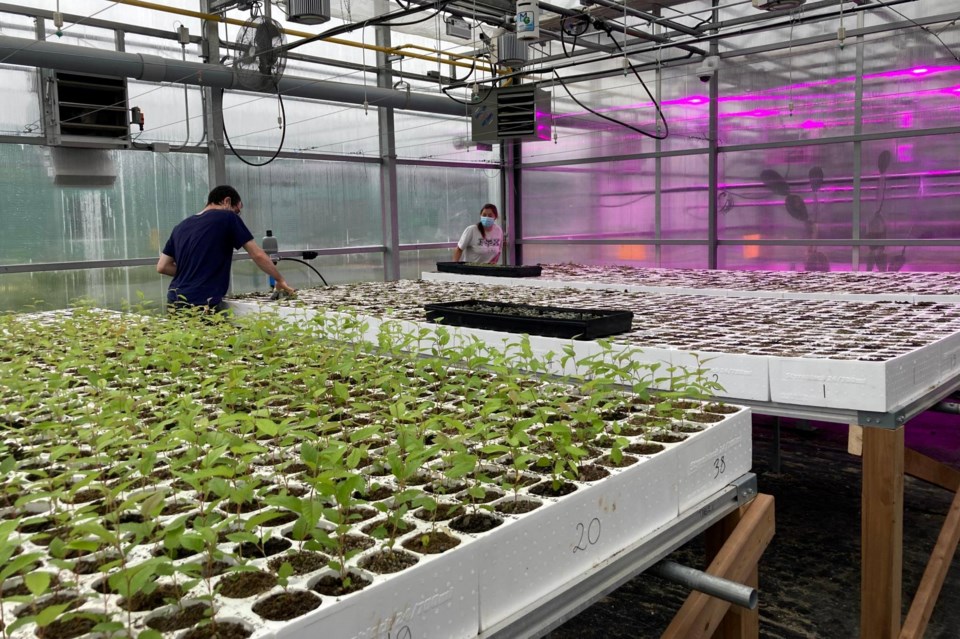Northern Ontario farmers interested in growing ethnic vegetables are being presented with a “golden opportunity” to get in on a hugely underserviced market across Ontario and Canada.
That’s the word of Johnny Kashama, a project manager and agricultural researcher with Collège Boréal in Sudbury, who shared details of his work with listeners during the fourth annual Northern Ontario Ag Conference, held virtually on Feb. 18.
Newcomers to Canada are looking to consume vegetables that they enjoy in their home countries, yet many aren’t varieties that are traditionally produced in Canada on a large-scale basis, Kashama said.
“So, this abundance of new Canadians has the potential to transform the Canadian food system given their desires for authentic-tasting foods, notably vegetables, because when you compare immigrants from other countries, when it comes to Canada, and you compare their way of consuming vegetables, they consume more vegetables than normal Canadians,” he said.
“So the demand for ethnocultural vegetables is really considerable.”
If producers grow the right products and promote them in the right way, it could represent “considerable” market potential, he said.
Some examples include African eggplant, a white, smaller and rounder version of the elongated purple varieties most Canadians are accustomed to eating, along with African basil, sweet potato leaves, and roselle, a flowering plant belonging to the hibiscus family.
The current cost for some ethnic vegetables is astronomical, Kashama noted.
African callaloo, a leafy green, can sell for as much as $5 per pound, while pumpkin or squash leaves can cost upwards of $6 per pound, and African eggplant commonly goes for between $7 and $9 per pound.
The seasonal market for asparagus beans is valued at $33.4 million, while okra represents a seasonal market value of $49.7 million.
Growing and selling special crops, or developing new value-added products, has the potential to attract new consumers and potentially increase a farmer’s income, Kashama said.
“Canadians, as we know, are also cross-cultural eaters, exploring new cuisines and seeking out new foods,” Kashama said.
“So this presents a significant economic opportunity for Canada's horticultural industry, which must evolve to meet the demands of the changing consumer palates, in fact, so when there is a shift in demographics, there should also be a shift in the market.”
Through his work at Collège Boréal, Kashama and his team have been cultivating different varieties of seeds to determine what might successfully grow in Northern Ontario.
To date, they’ve produced enough seeds in the greenhouse for six crops: okra, two varieties of hibiscus, and three varieties of amaranth.
This season, Kashama expects to produce more than 3,000 seedlings and will be trialling them in test plots in St. Charles, Powassan, Sudbury, and Whitefish to determine how those varieties adapt to the environment and ecology of Northern Ontario.
Kashama also recognizes that raising awareness and encouraging the adoption of new vegetables means getting people comfortable with eating them.
So starting in March, he’ll be hosting biweekly cooking sessions, live on Facebook, in partnership with Sudbury’s Seasons Pharmacy & Culinaria.
During each session, he’ll prepare recipes featuring ethnic foods and answer questions about the vegetables and their uses.
“We want to increase the visibility, availability and consumption, and popularize ethnic vegetables in Canada,” he said.
Although his team has already selected producers to work with on the crop trials for this season, Kashama said there would be future opportunities for farmers to get in on project in subsequent years.
He encouraged farmers who are interested in participating to contact him directly at Johnny.Kashama@collegeboreal.ca.
